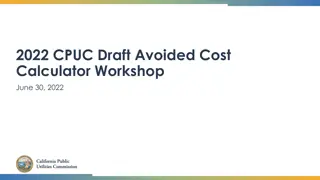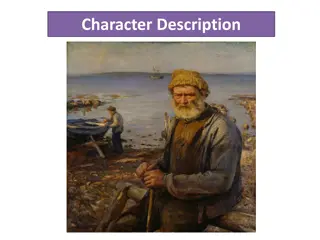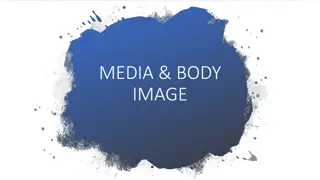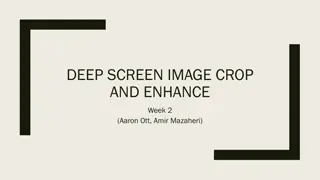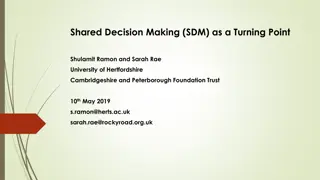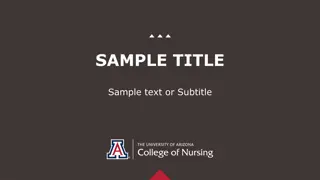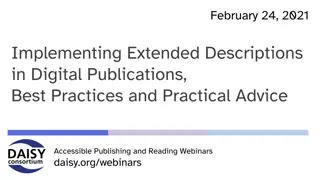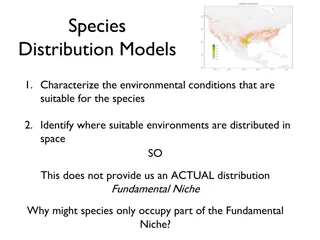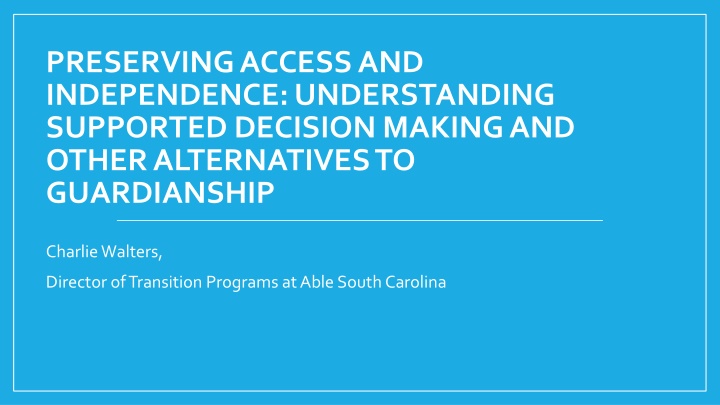
Supported Decision Making and Alternatives to Guardianship
Explore the importance of supported decision-making and alternatives to guardianship for preserving access and independence for individuals with disabilities. Discover the role of Able South Carolina and delve into critical questions around decision-making capabilities. Gain insights into consumer control, self-determination, and more.
Uploaded on | 0 Views
Download Presentation

Please find below an Image/Link to download the presentation.
The content on the website is provided AS IS for your information and personal use only. It may not be sold, licensed, or shared on other websites without obtaining consent from the author. If you encounter any issues during the download, it is possible that the publisher has removed the file from their server.
You are allowed to download the files provided on this website for personal or commercial use, subject to the condition that they are used lawfully. All files are the property of their respective owners.
The content on the website is provided AS IS for your information and personal use only. It may not be sold, licensed, or shared on other websites without obtaining consent from the author.
E N D
Presentation Transcript
PRESERVING ACCESS AND INDEPENDENCE: UNDERSTANDING SUPPORTED DECISION MAKING AND OTHER ALTERNATIVES TO GUARDIANSHIP Charlie Walters, Director of Transition Programs at Able South Carolina
Why Guardianship at APRIL? It s one of the most pressing issues in disability rights today The IL movement speaks intimately to the issue of the right of people with disabilities to direct their own lives CILs may be unaware 2017 Denver ILRU Youth Transition Training Guardianship support from CILs
Able South Carolina Center for Independent Living, run by and for individuals with disabilities Serve Midlands and Upstate, with some programs statewide Non-profit, federally and grant funded Cross-disability
Todays Agenda Cover Guardianship Basics Establish the Importance of Consumer Control and Self-Determination Survey Supported Decision-Making as an Alternative to Guardianship Brainstorm Next Steps
Can you independently make decisions about Complex medical procedures? Major car or home repair? Contacts for major purchases? Contracts for minor purchase? Complicated situations in relationships? Financial planning or taxes?
Since you were 18, who has Made a terrible relationship decision? Bought something without understanding the terms? Mismanaged a checking account or credit card? Made a decision only to have to make another because you went in the wrong direction? Acted impulsively without understanding the consequences?
And what do we believe about these things? Is it healthy to make decisions with support? Do all people have the right to fail and learn from bad decisions? Is the threat of bad decisions and/or the need for support cause to have an adult s decision-making authority taken from them?
Surrogate/Substitue Decision Making Surrogate Provider Individual
Forms of Surrogate Decision Making Guardianship "Incapacitated person means any person who is impaired by reason of mental illness, mental deficiency, physical illness or disability, chronic use of drugs, chronic intoxication, or other cause (except minority) to the extent of lacking sufficient understanding or capacity to make or communicate responsible decisions."-Uniform Probate Code Power of Attorney Conservatorship Representative Payee
The Start of Guardianship 449 BC - Roman Twelve Tables The first expressed legislation on Roman private law, made reference to guardianship by providing that a family or paternal relative should protect a person and his goods if that person was unable to take care of himself. By the end of the millennium, curators were being appointed to handle the affairs of the feeble-minded By the Middle Ages, the British appoint committees to make decisions for idiots and lunatics Best interest decision making is something we are intimately aware of in IL Forced sterilization, facility placements, and on and on
Setting the Stage for Guardianship 18 is the age of majority (19 in Alabama and Nebraska) Before Age of Majority: Rights and responsibilities of the parent are emphasized Upon Age of Majority: Rights of the parents automatically transfer For youth without disabilities, no assessment of fitness is given for this transfer For many youth with disabilities, this transfer causes many families to worry What s different about turning 18 for young adults with disabilities? The IEP process and systematic detailing of individual weaknesses IQ scores and developmental ages, grade level measurements, assessments of adaptive functioning, etc. Lower expectations Myths about the role of parents of youth with disabilities
The Truth About Guardianship There is not a single study out there that shows guardianship improving lives There are hundreds that show the positive effects of empowerment and self-direction Over 90% of guardianships awarded in the US are full (plenary) guardianships (TASH, 2015) Guardianship referrals: teachers (IEP process) and service providers (service decisions) Since 1995, the rate of guardianships in the US has tripled (TASH, 2015) In 20 years, we ve put 1,000,000 more people under guardianship This is post-ADA, post-Olmstead decision, and post-HCBS Final Rule (sort of implementation has been pushed back) Some states require people to try less-restrictive options first, most do not
The Truth About Guardianship (cont.) Loss of autonomy and self-determination is associated with higher incidents of abuse, neglect, and exploitation People under guardianship are less likely to be employed, practice their religion of choice, or have friends other than service providers Process is expensive attorneys, hearings, evaluations (follow the $!) Very difficult to modify or terminate Tremendous and continuous responsibility of the guardian Damages relationships Guardianship hinges on one s incapacity what range of movement do people with the label incapacited have?
The Truth About Guardianship (cont.) The typical ward has fewer rights than the typical convicted felon. They no longer receive money or pay their bills. They cannot marry or divorce ... It is, in one short sentence, the most punitive civil penalty that can be levied against an American citizen, with the exception ... of the death penalty. U.S. Representative Claude Pepper
Self-Determination and Consumer Control In IL we live by consumer control. Why? We are the best experts on our own lives. We know our consumers often come from environments where they are not trusted to direct their own lives. This is supported by 40+ years of research on self-determination
Lets Talk About Self-Determination! Many people believe that people with intellectual disabilities cannot be self-determined because of their cognitive impairment -research consistently shows that while SD is positively correlated with IQ, that relationship is generally weak and IQ is not predictive of self-determination status. Multiple research studies find that a person s self-determination status predicts higher quality of life. Self-determination status is positively correlated with more positive post-secondary outcomes, including employment, independent living, and community inclusion for youth with disabilities. A National Gateway to Self Determination funded by the US DHHS, Administration on Developmental Disabilities
People with Greater Self-Determination Are: Healthier More independent More well-adjusted Better able to recognize and resist abuse (Khemka, Hickson, & Reynolds, 2005; O Connor & Vallerand, 1994; Wehmeyer & Schwartz, 1998). SUPPORTED DECISION-MAKING: NEW ALTERNATIVE TO GUARDIANSHIP Richard LaVallo, Disability Rights Texas
Supported Decision Making Info Individual Provider Supporters
Supported Decision Making (cont.) Supported decision-making is a process in which individuals with disabilities are assisted in making decisions for themselves. Supported decision-making happens when an individual is the decision maker but is provided support from one or more persons who explain issues to the individual in a manner that he or she can understand. There is no one model of supported decision-making. (Adapted from the American Bar, 2012)
Supported Decision Making (cont.) Formal agreements Notarized SDM Agreement Outlined in a POA Informal agreements Knowing who to go to for what Example: I talk with mechanic friend before making car repairs Most states do not formally recognize SDM This is not a barrier! Right to accommodations under the ADA, HIPAA, etc.
Benefits of Supported Decision Making Individual is always at the center of decision-making. Individual decides who offers support. Individual retains legal rights. No expensive attorney fees or court fees. Teaches individual about decision making and details of his or her affairs
Who Led the Charge? The Rehabilitation Act? The ADA? The Olmstead Decision? Others?
What Next? Learn about SDM momentum in your state and get on board If no projects currently exist, look to state affiliates of national groups that support SDM and alternatives to guardianship (e.g. ARC , P&A, State Bar Association) The voice of IL and the disability community needs to be heard here!!! Research your state s guardianship law and start talking with people encountering the issue first hand A great website to start with: http://www.supporteddecisionmaking.org/states This includes understanding why families pursue guardianship (e.g. fears about authority in the IEP process, medical issues, money management, etc.) Think grassroots! The SC SDM Project began in somewhat of a vacuum with funding from the SC DD Council and support from P&A, ARC of SC, and our state s PTI
Lets Talk! Charlie Walters, Director of Transition Programs at Able SC cwalters@able-sc.org (803)779-5121 www.able-sc.org www.scsupporteddecisionmaking.org


